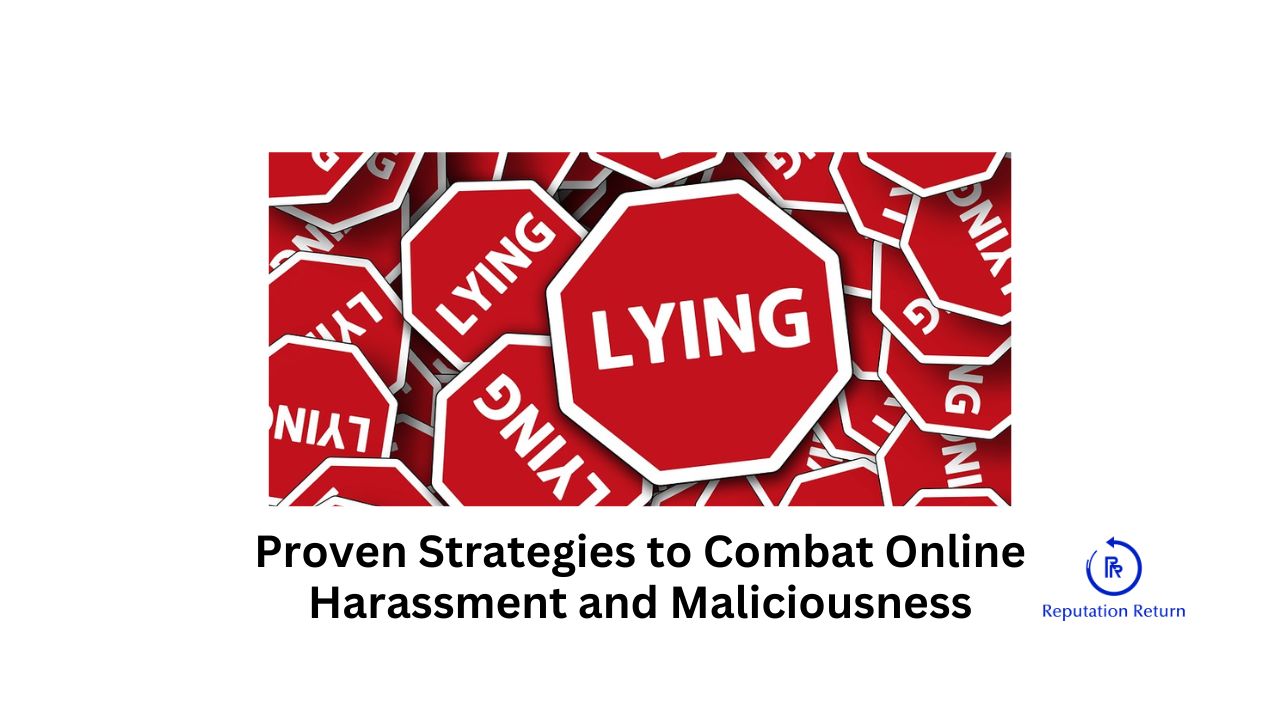Online harassment and malicious behavior are unfortunately common. These actions can have severe emotional, psychological, and financial impacts on individuals. While the internet provides a platform for free expression, it also allows bad actors to spread harmful content easily. Dealing with online harassment requires a multifaceted approach, combining personal strategies with professional support to effectively mitigate and counteract these attacks.
Understanding Online Harassment
Online harassment can take many forms, including:
- Cyberbullying: Targeted and repeated aggressive behavior intended to harm or intimidate. Learn more about cyberbulling and ORM solutions.
- Doxxing: Publicly sharing private information without consent.
- Trolling: Posting inflammatory or off-topic messages to provoke or upset.
- Defamation: Spreading false information to damage someone’s reputation.
Strategies to Combat Online Harassment
- Document and Report:
- Document Everything: Keep a record of all instances of harassment. Save screenshots, emails, messages, and URLs. This documentation is crucial for reporting and potential legal action.
- Report to Platforms: Most social media sites and online platforms have mechanisms for reporting abuse. Use these tools to report harassers. Persistent reporting can lead to the removal of harmful content and even the suspension of the offender’s account.
- Strengthen Privacy Settings:
- Social Media Privacy: Adjust privacy settings on social media accounts to limit who can view your content and contact you. Regularly update these settings to stay ahead of new threats.
- Personal Information: Avoid sharing personal information online that can be exploited by harassers. This includes addresses, phone numbers, and sensitive details about your life.
- Seek Support:
- Professional Help: Consider consulting mental health professionals to cope with the stress and anxiety caused by online harassment. They can provide strategies for maintaining emotional well-being.
- Support Networks: Engage with trusted friends, family, and support groups. Sharing experiences and receiving support can significantly alleviate the emotional burden.
- Legal Action:
- Consult a Lawyer: If harassment escalates, seek legal advice. Lawyers specializing in cyber law can guide you on the possibility of pursuing legal action against harassers.
- Restraining Orders: In some cases, you may be able to obtain a restraining order to prevent further harassment.
- Use Technology Solutions:
- Blocking and Filtering: Use tools and apps designed to block and filter out unwanted communication and content.
- Cybersecurity Measures: Implement strong cybersecurity practices, such as using robust passwords, enabling two-factor authentication, and keeping software up to date.
- Public Relations and Reputation Management:
- Control the Narrative: Actively manage your online presence by sharing positive and accurate information about yourself. This can help counteract negative content.
- Engage with Professionals: Employ public relations or reputation management professionals who can help you navigate and repair your online reputation.
The Importance of Online Reputation Management
Online reputation management (ORM) is crucial in mitigating the effects of online harassment and malicious behavior. Implementing a strategic ORM program involves:
- Continuous Monitoring: Regularly monitoring the internet for mentions of your name or brand helps in early detection of harmful content.
- Content Creation: Producing and promoting positive content helps overshadow negative information. This includes blogs, articles, social media posts, and other forms of online presence.
- Engagement: Actively engaging with your audience in a positive manner can help build a supportive online community that can defend against malicious attacks.
- Search Engine Optimization (SEO): Optimizing positive content to rank higher in search results can push down negative content, making it less visible to the general public.
Dealing with online harassment and maliciousness requires a proactive and comprehensive approach. By documenting and reporting harassment, strengthening privacy settings, seeking support, considering legal action, and using technology solutions, individuals can protect themselves from the harmful effects of online abuse. Implementing a strategic online reputation management program is essential in minimizing and even reversing the impact of bad actors. This not only helps protect personal and professional reputations but also fosters a safer and more respectful online environment.

